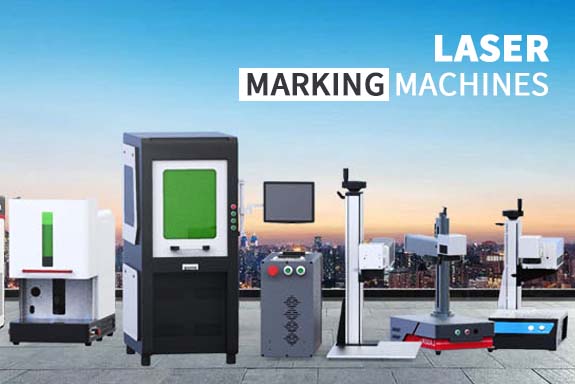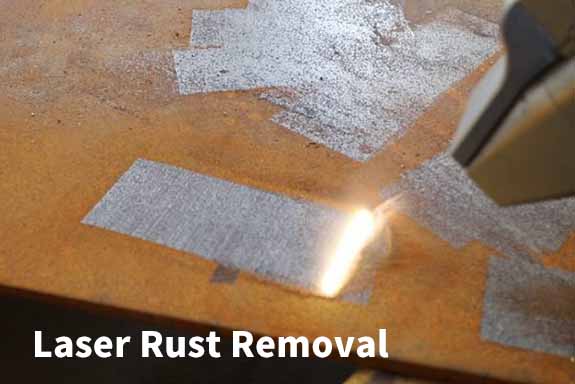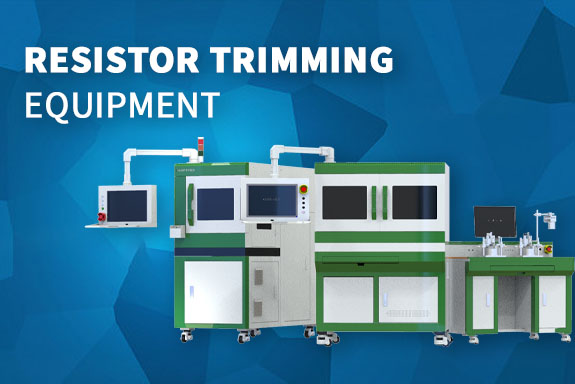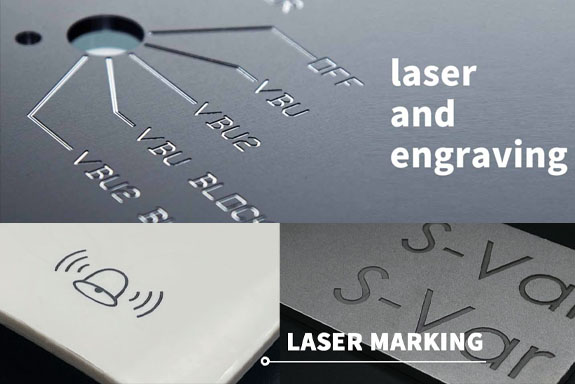In today’s fast-paced, competitive manufacturing industry, the need for permanent, high-quality marking on a variety of materials is becoming increasingly important. This is where laser marking machines come into play. These machines have revolutionized the way products are marked, providing precise, permanent and versatile solutions for a variety of applications. In this article, we will explore the capabilities of laser marking machines, their applications, and the benefits they bring to the industry.
What is a laser marking machine?
A laser marking machine is a device that uses a laser beam to mark or engrave a variety of materials, including metal, plastic, ceramics, glass, and more. The process involves using a focused laser beam to create permanent marks on the surface of the material. This can include text, logos, serial numbers, barcodes and other types of identifying or decorative markings.

Laser marking machines come in different configurations, including fiber optic, CO2 and UV lasers, each suited to specific materials and applications. These machines are equipped with advanced software to precisely control the marking process, ensuring high quality and consistent results.
How does a laser marking machine work?
The operation of a laser marking machine involves several key components working together to provide accurate and permanent marks. The main components of a laser marking machine include the laser source, marking head, control system and workpiece processing system.
A laser source produces a high-energy beam of light used for marking. Depending on the type of material being marked, different types of lasers can be used. For example, fiber lasers are great for marking metals, while carbon dioxide lasers are better suited for organic materials like wood and plastic.
The marking head is responsible for directing the laser beam onto the surface of the material. It contains focusing optics that ensure the laser beam is precisely focused to achieve the required marking quality.
The control system of the laser marking machine includes software and hardware that control the parameters of the marking process. This includes setting laser power, marking speed, and other variables to achieve the desired mark.
The workpiece handling system is responsible for positioning the material to be marked in the correct location and maintaining stability during the marking process. This can include conveyor systems, rotating devices or other mechanisms to ensure accurate and consistent marking.
Application of laser marking machine
Laser marking machines are widely used in various industries due to their versatility and ability to accurately mark a variety of materials. Some common applications include:
- Automotive industry: Laser marking is used to place serial numbers, barcodes and other identification marks on parts for traceability and quality control.
- Medical Devices: Laser marking is essential for marking regulatory information, serial numbers and other identifying marks on medical devices and equipment for tracking and security purposes.
- Electronics and Semiconductors: Laser marking is used to mark part numbers, logos and other identification marks on PCBs, electronic components and semiconductor materials.
- Aerospace and Defense: Laser marking is used to mark aircraft components, military equipment, and aerospace components with serial numbers, part numbers, and other critical information for tracking and maintenance.
- Jewelry and Personalized Items: Laser marking is widely used to create intricate designs, logos and personalized engravings on jewelry, watches and other luxury goods.
Advantages of laser marking machines
The use of laser marking machines offers several advantages over traditional marking methods, making it the first choice for many industries. Some key benefits include:
- Permanent marking: Laser marking can form permanent markings that are resistant to wear, corrosion, and fading, ensuring lasting identification and branding.
- High precision: Laser marking machines have excellent precision and accuracy, making it easy to create fine details, small fonts and complex designs.
- Non-contact process: Laser marking is a non-contact process, which means there is no physical interaction with the material, thus reducing the risk of damage or contamination.
- Versatility: Laser marking machines can mark a variety of materials, including metals, plastics, ceramics, etc., making them suitable for a variety of applications.
- Speed and efficiency: Laser marking is a fast, efficient process that enables high throughput and productivity in manufacturing operations.
Choose the right laser marking machine
When selecting a laser marking machine for a specific application, there are several factors to consider to ensure the best results. These factors include the type of material to be marked, the required mark quality, throughput and budget constraints.
For metal marking, fiber laser marking machines are preferred because of their ability to provide high contrast and durable marks on metal surfaces. For organic materials such as plastics and wood, CO2 laser marking machines are suitable for precise and clean marking.
The required marking quality, including the size of the mark, the complexity of the design, and the readability of the mark, will also influence the choice of laser marking machine. High-precision marking may require machines with advanced focusing optics and fine-tuned control systems.
Throughput is another key factor to consider when choosing a laser marking machine. For high-volume production environments, machines with high-speed marking capabilities and automation features (such as conveyor systems or robot integration) may be required to meet production needs.
Finally, budget constraints will play a role in the selection process, as the cost of the laser marking machine and its ongoing maintenance and operating expenses need to be consistent with the available budget.
In summary, laser marking machines have become an indispensable tool for achieving permanent, high-quality marking on a variety of materials. Their versatility, precision and efficiency make them a valuable asset to industries looking for reliable, durable marking solutions. By understanding the capabilities of laser marking machines and their applications, companies can make informed decisions when integrating this technology into their manufacturing processes.
由用户整理投稿发布,不代表本站观点及立场,仅供交流学习之用,如涉及版权等问题,请随时联系我们(yangmei@bjjcz.com),我们将在第一时间给予处理。







